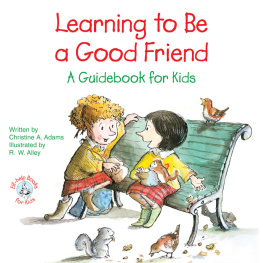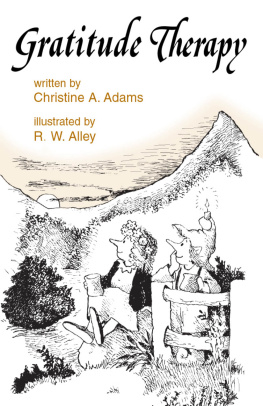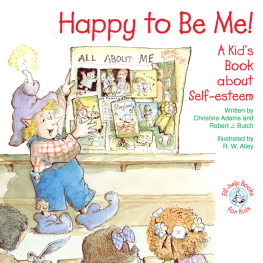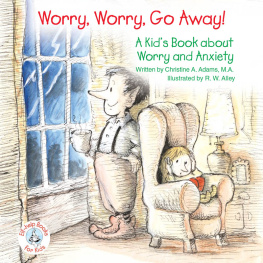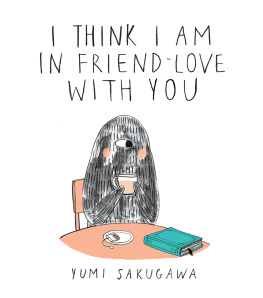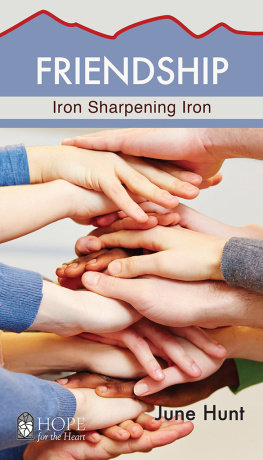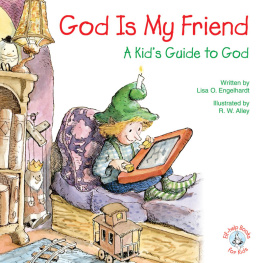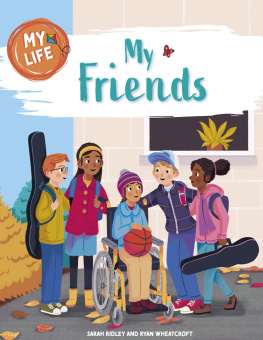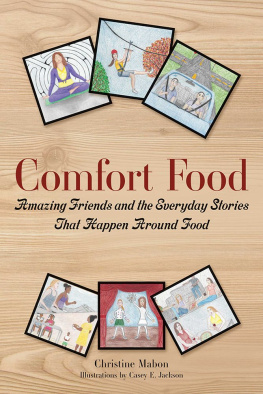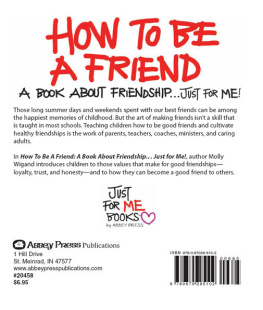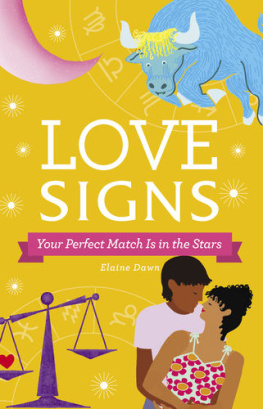
Learning to Be a Good Friend
A Guidebook for Kids
Written by
Christine A. Adams
Illustrated by
R. W. Alley

Abbey Press
All rights reserved, including without limitation the right to reproduce this ebook or any portion thereof in any form or by any means, whether electronic or mechanical, now known or hereinafter invented, without the express written permission of the publisher.
Text copyright 2004 by Christine A. Adams
Illustrations copyright 2004 by St. Meinrad Archabbey
ISBN: 978-1-4976-8296-2
Abbey Press Publications
1 Hill Drive
St. Meinrad, Indiana 47577
www.abbeypress.com

Distributed by Open Road Distribution
345 Hudson Street
New York, NY 10014
www.openroadmedia.com

A Message to Parents, Teachers,
and Other Caring Adults
All kids need friends. To have friends, a child needs to learn to be a good friend. Yet children arent born with finely tuned social skills. They need to learn how to make friends, choose friends wisely, and keep good friends.
The single most important factor in the development of friendship skills is the way children are treated at home and school. Attitudes of acceptance versus criticism in these environments get played out in the childs social world. For example, constantly demanding things of a child instead of negotiating decisions can teach that child to be bossy and demanding with peers.
Second, adults can teach children to be kind to themselves when they make mistakes. In turn, these children will learn to be compassionate with other kids when they make mistakes. Through kindness and understanding, adults can show the child what it means to be a caring, supportive friend.
Third, adults can help children develop empathy for others. They can ask important questions at key times, like How do you think Ryan felt when you said he was stupid? By talking about the feelings and thoughts behind actions, kids can begin to recognize and take on the other persons viewpoint. A good follow-up question might be: What can you do next time you feel that angry? What choices do you have?
By letting kids know they have social options, grownups help them to avoid behaviors that deter friendship and lead to peer rejection. Many kids resort to inappropriate behaviors, like fighting or teasing, because they havent mastered adaptive social skills. Kids depend on caring adults to help them master appropriate tactics for all kinds of social situations.
All kids need to be taught how to cultivate and nurture friendship. Through modeling positive behavior and talking with kids about the issues covered in this book, you can be what a child needs mosta true friend.
Christine A. Adams
What Is Friendship?
F riendship means having friends. Everyone needs friendship in his or her life.
A friend is someone you have fun with. You need a friend to hide so that you can find him. You need a friend to hit the ball so you can catch it. Your friends often like the same things as youmaybe tennis or dinosaurs or Cub Scouts.
Y ou can play with friends just about anywherein your house, in your neighborhood, at school recess, or on a sports team.
H aving a friend makes you feel happy inside. Its nice to care about someone and know that he cares about you, too!

Choosing a Friend
K atie and Grace go to dance class together on Wednesdays. They both like to play house and dress their dolls in different clothes. Choose a friend who likes what you like.
S tay away from kids who do bad thingslike making fun of other kids, being mean to animals, or telling lies. They can really get you into trouble. Just being around a mean kideven if youre not doing anything badcan get you in trouble sometimes.

How to Make Friends
B e friendlysay hi and smile. Tell a kid who seems nice that his social studies project is cool. See if he wants to play with you and what hed like to play.
I f you see kids playing a game, and a kid makes a good move, say, Nice shot. Wait until the game slows down and then ask to play.
A lways have a fun attitude. Grab a ball and say, Who wants to play? If no one does, just go on to something else. Soon others might join you.
I f youre shy, these things can be hard to do. Ask God to give you a boost of bravery. Making friends is worth it!

Playing on a Team
A sk your mom or dad if you can play on a sports team. Being a part of a team is a great way to find friends.
B e a good sport by doing your best for the team, and letting other kids play their own positions. If a kid misses a pitch, a goal, or a basket, dont make fun. Just say, Nice try.
A sk your parents if one of your new friends can come over to your house sometime to play with you.

How to Be a Friend
T o have friends, you need to BE a friend. This means sharing, taking turns, and being fair. Treat your friends the way you want to be treated.
I f you want to jump on the trampoline but your friend wants to play whiffleball, maybe you could play ball for fifteen minutes and then do the trampoline.
D o nice things for your friend. If she falls on the trampoline, say, Are you all right? and help her up. If she misses some words on the spelling test, tell her shell do better next time.
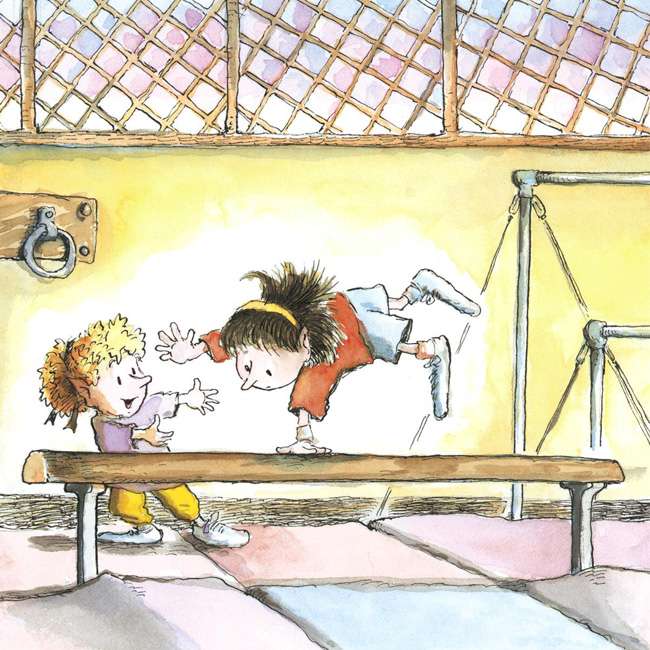
How to Keep Friends
I f you tell your friend youll save a place for him at lunch, be sure to do it. Keeping promises is an important part of friendship.
I f someone says something mean about your friend, stick up for him. If you hurt your friend in some way, say youre sorry and try to make it up to him.
I f you and your friend dont agree about something, try to talk about it without getting mad. Really listen to your friend, so you can feel what he is feeling. See if the two of you can come up with a plan that works for both of you.

Things Friends Dont Do
F riends dont punch, kick, bite, or scratch each other. If you are wrestling or horsing around, be careful not to hurt your friend.
W hen you want a turn on the swing set, dont be mean and say, If you dont let me swing, I wont be your friend.
D ont make fun of your friendsor anyone. Never use mean names or say bad things about someone behind her back. If you hurt someones feelings, its as bad as if you hit her. It hurts inside.
Next page
